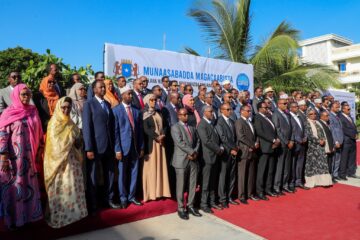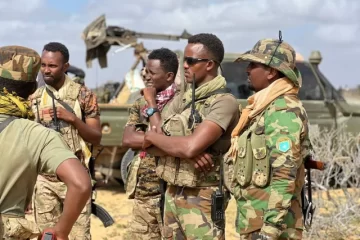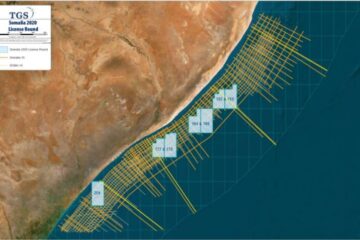The main tasks awaiting Somalia’s incoming ministers

Since his election on May 15, President Hassan Sheikh Mohamud has been swift to make key appointments to ensure the country was back on track following over a year of political crisis over delayed elections. His biggest appointment was nominating lawmaker Hamza Abdi Barre as the new prime minister on June 15. Having been approved by the parliament ten days later, PM Barre on Aug 2 named his long-awaited list of cabinet which will be official once the parliament approves it.
This piece looks at the three tasks that stand out as most pressing and urgent that the cabinet needs to prioritize in its first 100 days.
Tackling recurring droughts
Droughts have become so recurring in Somalia that they are no longer seen as breaking news. Analysts are worried that there is ‘compassion fatigue’ among donors. The recurring nature of this calamity and other emerging crises in other parts of the world such as the war in Ukraine are among factors causing this fatigue. Therefore, finding a lasting solution to the issue of droughts in Somalia should definitely be prioritized by the cabinet.
Recognizing the importance of dealing effectively with droughts, President Mohamud was swift to appoint a member of the lower house, Abdirahman Abdishakur, as his Special Envoy for Drought Response.
Abdishakur has already visited displaced people in some parts of the country to assess their conditions and has stepped up efforts to mobilize and coordinate international humanitarian assistance.
However, finding a lasting solution to this dire situation should be one of the main priorities of the incoming cabinet. PM Barre has thus taken a step in the direction to create for the first time the Ministry for Environment and Climate Change which will be headed by Khadija Mohamed Almakhzoumi.
Accelerating war on Al-Shabaab
The incoming cabinet should also prioritize achieving a safe and secured Somalia. During his visit to Turkey, President Mohamud reiterated that ensuring security in the country to be his administration’s main objective. This is not the first time that a Somali leader has made such a pledge. Nevertheless, there is a sense of optimism among observers that Mohamud is keen to achieve this objective. Mohamud told a think-tank in Turkey that he is keen to take the war to al-Shabaab brushing off calls for negotiation at this stage. “We are not right now in a position to negotiate with Al-Shabaab. We will, at the right time,” he said during his keynote speech at Ankara-based SETA Foundation.
Al-Shabaab remains Somalia’s primary security threat. The group has in recent weeks intensified its attacks in the country and has even carried rare incursions into Ethiopia’s Somali Regional State. It also controls swathes of land in the Horn of African country and extorts money from businesses in areas it controls as well as some parts of the capital Mogadishu.
The mandate of the African Union Transition Mission in Somalia (ATMIS), formerly the African Union Mission in Somalia (AMISOM), is set to end in 2024 when it is expected to hand over the security of the country to Somalia’s security forces. Hence, the new government should expedite efforts to ensure the achievement of this objective to avoid yet another extension of the African Union force mandate especially in light of ‘donor fatigue’. Last month, President Mohamud conducted a four-day visit of Eritrea where over 5,000 Somali soldiers have been receiving training in the past close to three years. Upon their return, analysts believe they will play a crucial role in the war against the extremist group.
Debt relief
Somalia’s quest for debt relief has garnered pace under Farmajo’s administration prompting the international financial institutions to announce in March 2020 that the Horn of African country had reached the Decision Point after making necessary economic reforms under successive the International Monetary Fund (IMF) Staff Monitored Programs. In other words, Somalia became eligible for debt relief under the Highly Indebted Poor Countries (HIPC) initiative, meaning its debt could be cut down from $5.2 billion in 2018 to a target of $557m eventually. However, the stalled elections throughout last year impacted on the outgoing government’s ability to continue with the reforms. Prime Minister Barre’s cabinet is thus expected to ensure stead progress towards full debt relief, a milestone achievement for Somalia’s economic development.








